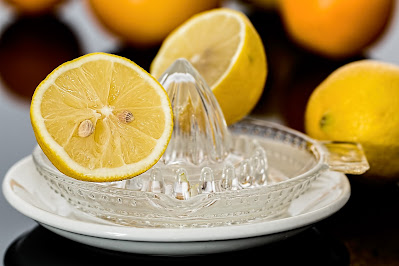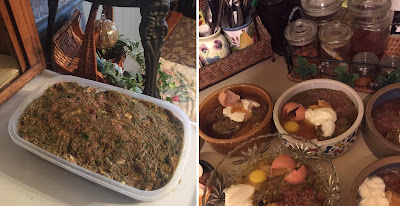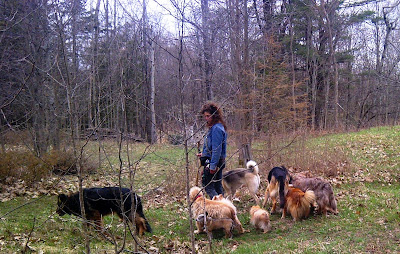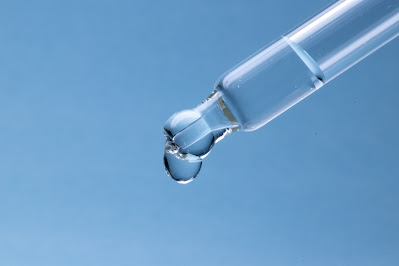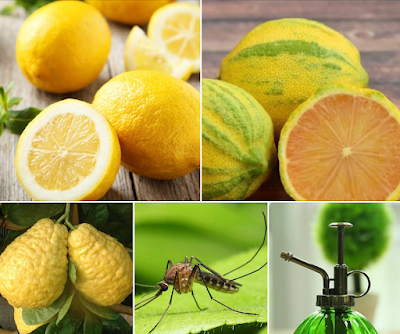Lemons - Good for Dogs, Many Health Benefits and Uses
★ 8 min read
In this article:
- Health Benefits of Lemon for Dogs
- How to Use Lemon to Support Your Dog's Health
- Skin Conditions
- Vascular Damage, Frostbite
- Repel Insects, Mosquitoes
- Urinary Tract Infections (UTIs)
- Shampoo, Cleanser, Rinse
- Eye Infections
- What Type of Lemon Should You Use?
- How to Add Lemon to Your Dog’s Diet.
- Serving Recommendations
1.0 Health Benefits Of Lemon For Your Dog
Antibacterial, Anti-fungal, Antiviral, Antimicrobial
Lemon helps protect against bacterial, fungal, viral and microbial infections and parasites.
Allergy Symptom Relief
Lemon can help reduce the symptoms of environmental allergies.
- Go to this article.
Replace synthetic-chemical household
cleaners. Use lemon alone or in combination with other all-natural ingredients. Recipes for dog friendly household cleaners:
- Go to this article.
Arthritic Pain Relief
Fresh lemon can help relieve arthritic pain. Lemons are antioxidant-rich, anti-inflammatory and help remove toxins that contribute to inflammation in the joints. The antioxidant and enzymes in lemon also help support collagen and tendon health.
Fresh lemon can help relieve arthritic pain. Lemons are antioxidant-rich, anti-inflammatory and help remove toxins that contribute to inflammation in the joints. The antioxidant and enzymes in lemon also help support collagen and tendon health.
Anti-Aging Support
The high
levels of antioxidants present in lemons help the body fight against aging.
Fight Harmful Bacteria
Fresh lemon juice kills many types of bad bacteria, including those that
cause deadly disease.
Inhibit Cancer
The vitamin C in lemon helps protect cells from free radical damage. Free
radicals are charged atoms that form when specific molecules interact with
oxygen. The free radicals then react with cell membranes and the DNA within
cells – the reaction damages the DNA and membranes and thus the cell itself.
Damaged cell structure is the first stage in the lead-up to cancer. A diet high
in viable high-quality antioxidants plays a significant role in preventing the
development of cancer.
Fresh lemon has 22 anti-cancer compounds. These include:
- Limonene – oil that slows and /or halts the growth of cancer tumours.
- Flavonol glycosides - that stop cell division in cancer cells.
Calming Affect
Lemon acts as a sedative for nerves and can be used to help calm your dog's nerves.
Lemon acts as a sedative for nerves and can be used to help calm your dog's nerves.
Detoxification and Protection From Poisoning
The ancient
Egyptians ate lemons and drank lemon juice in order to protect themselves from
a variety of poisons.
Lemons are a natural remedy
for food poisoning (salmonella and e-coli).
The powerful acids present in
lemon juice can kill harmful microorganisms and toxins present in the digestive tract. These bad pathogens
can enter a dog's body from exposure to:
- Food contaminated with bacteria, fungi.
- Harsh chemicals (pesticides, herbicides, fungicides, fertilizers).
- Other biological agents.
Lemons are rich-in minerals and vitamins that help remove toxins from the
digestive tract.
Diarrhea and
Constipation
Lemon aids in the cleansing of the bowels (killing bad bacteria and dislodging toxins) which helps eliminate both constipation and diarrhea.
Lemon aids in the cleansing of the bowels (killing bad bacteria and dislodging toxins) which helps eliminate both constipation and diarrhea.
Disease
Fighting
Lemons are a
rich source of limonoids (phytochemicals), that are vital disease-fighting
compounds which when present in sufficient concentration are effective in
helping to inhibit certain cancers – for example ovarian cancer and oral-cavity
tumours.
Eye Disorders
The symptoms of eye disorders, including diabetic retinopathy can be mitigated with the ingestion of lemon due the rutin present in lemons.
The symptoms of eye disorders, including diabetic retinopathy can be mitigated with the ingestion of lemon due the rutin present in lemons.
Ear
Infections (bacterial)
Using a lemon flush is an effective way to keep your
dog’s ears clean and free of infection. Ear infections are one of the most common ailments in dogs.
Heart Health
Lemons contain a relatively high level of potassium – potassium is beneficial to heart-health.
Lemons contain a relatively high level of potassium – potassium is beneficial to heart-health.
Immune System
Health
Lemons are
rich in vitamin C. Vitamin C is an antioxidant that supports immune system
function.
Intestinal
Parasites
Lemon is a natural worming aid.
Liver Health
Lemon stimulates the liver, dissolves uric acid and other poisons thereby supporting liver health.
Lemon stimulates the liver, dissolves uric acid and other poisons thereby supporting liver health.
Metabolic Health
Lemon contains a significant amount of pectin fibre which helps to stop huger pains. Additionally a more alkaline diet promotes weight loss. So if your dog is overweight add some lemon to his/her diet. Turmeric is excellent as an aid to weight loss as well. Adding appropriate fruit and vegetables to your dog’s diet can also help your dog lose weight.
Lemon contains a significant amount of pectin fibre which helps to stop huger pains. Additionally a more alkaline diet promotes weight loss. So if your dog is overweight add some lemon to his/her diet. Turmeric is excellent as an aid to weight loss as well. Adding appropriate fruit and vegetables to your dog’s diet can also help your dog lose weight.
Nutrient Absorption
Vitamin C helps the body absorb calcium, Vitamin C, Vitamin
B3, selenium and glutathione work in tandem with Vitamin E to help prevent liver and
gall bladder problems. As well lemon offers other long-term benefits, e.g., lemon can help prevent and alleviate digestive problems, especially malabsorption of
nutrients. Just below, a list of vitamins and minerals in lemons.
- Very high in vitamin C
- Nature’s top source of citric acid
- One of nature’s top seven sources of potassium.
Minerals in Lemons
|
Vitamins in Lemons
|
|
Potassium
- 116 mg
|
Vitamin
C - 44.5 mg
|
|
Calcium
- 22 mg
|
Vitamin
B1 (thiamine) - 0.034 mg
|
|
Phosphorus
- 13 mg
|
Vitamin
B2 (riboflavin) - 0.017 mg
|
|
Magnesium
- 7 mg
|
Vitamin
A - 18 IU
|
|
Sodium - 2 mg
Iron - 0.5 mg Selenium 0.3 mcg Manganese - 0.025 mg Copper - 0.031 mg Zinc - 0.05 mg Also contains small amounts of other minerals. |
Niacin - 0.084 mg
Folate - 9 mcg Pantothenic Acid - 0.16 mg Vitamin B6 - 0.067 mg Vitamin E - 0.13 mg Contains some other vitamins in small amounts. |
Appetite Stimulant
For most dogs
this is not an issue, but a dog that is stressed, grieving etc. or suffering
from certain medical conditions may not eat enough. The high potassium content
of lemons can help to stimulate appetite.
Strengthen
Blood Vessels
Lemon contains bioflavonoids (vitamin P) that strengthen blood vessels and prevent internal hemorrhaging.
Lemon contains bioflavonoids (vitamin P) that strengthen blood vessels and prevent internal hemorrhaging.
Kidney and Bladder Stones
Fresh lemon juice helps balance blood pH and urinary pH.
Dogs with bladder and kidney stones have an unbalanced pH.
Fresh lemon juice is more effective than potassium citrate for reducing urinary calcium levels and increasing urinary output.
To learn more go to this article.
Support for Teeth and
Bones
The high vitamin C content of lemons helps the body absorb/metabolize calcium. A
diet that is rich in vitamin C creates an environment in which bacteria does
not thrive. These foods also increase saliva production which helps to wash
away bacteria and plaque. To understand more about the other benefits of
vitamin C in dog dental read more here.
2.0 How To Use Lemon To Support Your Dog's Health
2.1 Skin Conditions
Acne – Puppy Dermatitis (Impetigo and Acne), Skin-Fold Pyoderma
Acne, often
located on the chin or lips, can occur in puppies 3 months of age or older.
Acne is common in Boxers, Bulldogs, Dobermans and Rottweilers, but can also
occur in other breeds of dogs.
Skin-Fold Pyoderma occurs when inflammation
results from skin constantly rubbing together. To treat these conditions you
use a cotton ball to apply:
- Undiluted lemon juice (do not use undiluted lemon juice if the skin is broken as the undiluted lemon will sting)
- Green tea and lemon:
- Steep a bag of green tea, let it cool to warn temperature, add the juice of half a lemon and using a cotton ball apply the resulting lemon-tea to the affected area – do not rinse
- Lemon and Manuka Honey:
- Mix 1 part lemon juice with an equal portion of rose or manuka honey water – apply with a cotton ball and leave the mixture on the skin for a minimum of half an hour, then rinse with water
- You can also bath the puppy in the treatments noted above.
These
treatments work best if applied twice a day.
2.2 Vascular Damage, Frostbite
Lemon juice increases circulation which can help avoid vascular damage leading to frostbite. Dogs with short fur (such as my Boxer x boy below), are prone to frostbite of the ears in cold weather.
2.3 Insect, Mosquito Repellent Aid
Lemon when
applied topically can be used to repel insects and parasites. Mosquitoes do
not like the scent of citrus.
Lemon Repellent Recipe:
- Go to this article.
2.4 Urinary Tract Infection (UTI)
If you treat a UTI in its early stages you can use lemon to treat the infection.
Topical
Treatment
Use the
cleanser as described in 6.0 below to bath your dog – this will help to flush
out bacteria that might otherwise invade your dog’s urinary tract.
Ingested
Treatment
Mix the following together in a bowl:
Mix the following together in a bowl:
- Fresh lemon juice – you can also add some minced lemon.
- Use an equal part of warm water.
- And some fresh or frozen crushed cranberries to the lemon juice/warm water mixture and pour the resulting mixture into a food bowl.
- You can also add a few slices of orange (cut it up, don’t use whole uncut sections).
- 1 tsp to 1 tbs of organic unfiltered, unpasteurized apple cider vinegar.
Give this
treatment to your dog twice a day until the infection clears. If the infection
does not clear-up in the space of a day its time to get some professional help. You can read more about UTI's here.
2.5 Shampoo, Cleanser, Rinse Recipe
Lemon can be used in combination with greet tea and
apple cider vinegar as a highly effective cleansing and disinfecting rinse. An
excellent alternative to commercially made pet shampoos which can be full of toxins and carcinogens. Just as you would with commercially
made shampoos - make sure you avoid getting the lemon juice cleansing rinse in
your dog’s eyes.
To make the rinse:
- Steep a bag or two of green tea.
- Allow the tea to cool to room temperature.
- Add the juice of a fresh lemon.
- Use the resulting liquid to bath your dog.
- You can also add a few tbs of organic, unfiltered, apple cider vinegar to the tea and lemon mixture.
2.6 Eye Infections
Distilled
Water and Fresh Lemon Juice (room temperature)
not for use with pink-eye
- Combine;
- 2 tbs distilled water with
- 4 drops of fresh squeezed lemon juice
- Stir well
- Drop 2 to 3 drops in the eye two to three times a day until the infection clears
3.0 What Type of Lemon Should You Use?
Don’t use
bottled, processed/pasteurized lemon juice – this type of lemon juice loses its beneficial properties during pasteurization and processing.
Use fresh lemons and fresh squeezed lemon juice.
The heavier
and fresher the lemon the better the health properties of the lemon!
4.0 How to Add the Lemon to Your Dog’s Diet
- Freeze a whole lemon and grate a little over your dog’s food.
- Add fresh lemon juice to a water bowl.
- Place the lemon water bowl next to your dog's regular bowl of water.
- Remember to change the lemon water on a daily
basis. Make sure your dog always has a bowl of pure water next to the lemon water bowl.
- Add fresh-finely minced lemon to your dog’s food.
- Peel the lemon and slice it into 4 to 6 pieces.
- Remove the seeds.
- Puree the flesh of the lemon.
- Add the pureed lemon to your dog's food once a day.
- Store
any remaining pureed lemon in an air tight glass container (in the
refrigerator) for up to two days.
Over 10 days gradually increase the amount of lemon to the lowest recommended dosage for your dog's size range.
You can then increase to the higher dosage in your dog's range if you would like to do so.
5.0 Daily Serving Recommendations
Small dogs - 1/4 to 1 tsp/day.
Medium dogs - 1 to 2 tsp/day.
Large dogs - 2 to 3 tsp/day.
X-Large dogs 3 to 4 tsp/day.
Holistic Diet, Nutrition, Wellness Services Tailored to Your Individual Dog and Cat
For information about my holistic diet, nutrition and wellness services, visit my holistic wellness services page.
Maintain good health | Address acute and chronic health issues | Pre and post surgery support and recovery
My holistic wellness services are available worldwide via video consultation.
🌎 USA | Canada | UK | Europe | Australia | New Zealand | Asia | South and Central America | Africa | UAE
📱FaceTime | Facebook | Skype | WhatsApp
To set-up your holistic wellness consultation get in-touch via email, go to my contact me page.
Holistic Behavioral Services for Your Dog
For information about my holistic behavioral services, visit my holistic behavioral services page.
For dogs of all ages, sizes and breeds.
My behavioral services are available worldwide via video consultation.
🌎 USA | Canada | UK | Europe | Australia | New Zealand | Asia | South and Central America | Africa | UAE
📱FaceTime | Facebook | Skype | WhatsApp
To set-up your holistic behavioral session get in-touch via email, go to my contact me page.
Affiliations to Companies
✓ None.
✓ I don't sell food, supplements, or other products.
✓ I'm not aligned with any companies.
Article and graphics by Karen Rosenfeld.
